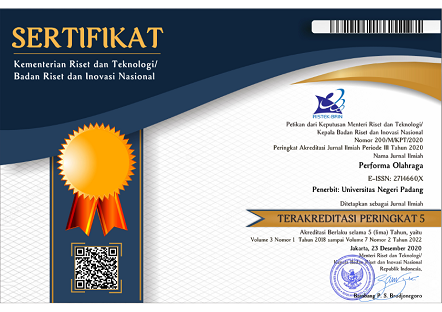Training Methodologies in Sambo: A Comparative Study with other Martial Arts
DOI:
https://doi.org/10.24036/jpo661019Abstract
This comparative research explores the complex martial arts disciplines of Sambo, Brazilian Jiu-Jitsu (BJJ), Judo, and Taekwondo, analyzing their distinct techniques, strategic orientations, and impact on combat preparedness. The research highlights the diverse levels of skill across practitioners, as measured by participant scores (PS). BJJ practitioners excel in ground-based fighting methods, whereas Taekwondo focuses on agility and precise striking. Thematic studies demonstrate that Sambo exhibits flexibility by swiftly shifting between striking and grappling techniques, which is in contrast to Judo's emphasis on strategic balance, leverage, and tactical accuracy. The research clarifies the effectiveness of each discipline in improving the readiness of practitioners for war, highlighting the need to align training methods with particular combat situations and strategic goals. Nevertheless, the presence of constraints such as the size of the sample and the variety of the demography requires careful interpretation of the results
Downloads
Published
How to Cite
Issue
Section
License
Copyright (c) 2024 Mudayat Mudayat, Arisman Arisman, Ardo Okilanda, Dede Dwiansyah Putra

This work is licensed under a Creative Commons Attribution-NonCommercial-ShareAlike 4.0 International License.









.png)





